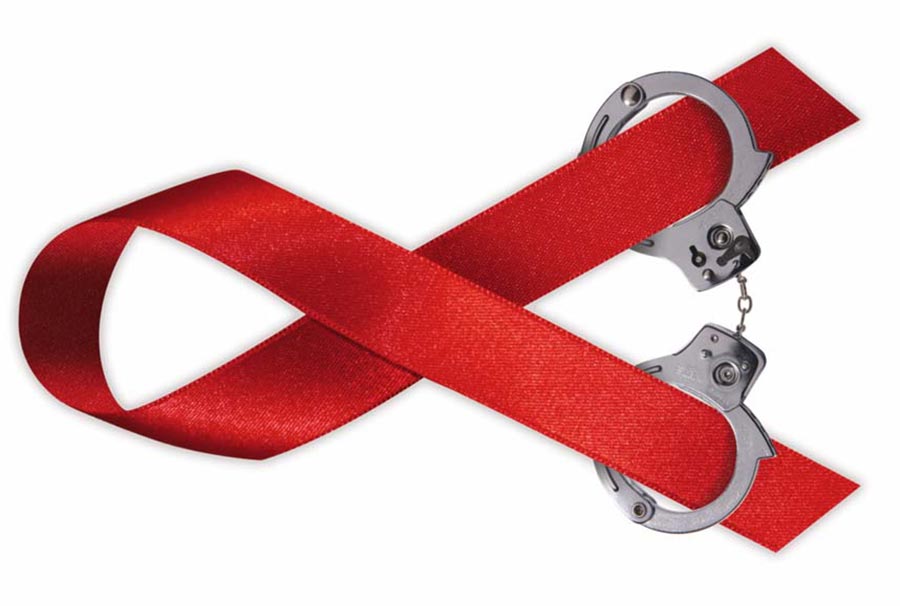According to Trevor Hoppe, assistant professor of sociology at the University at Albany, SUNY, “criminalization is never the appropriate response to infectious disease.”
It’s an idea that Hoppe explores in his new book, “Punishing Disease: HIV and the Criminalization of Sickness,” which he’ll be discussing Nov. 17 at William Way LGBT Community Center.
Hoppe’s fellow panelists are Ronda Goldfein, executive director of the AIDS Law Project of Pennsylvania, and Teresa Sullivan of Philadelphia FIGHT. Chris Bartlett, William Way’s executive director, will moderate the discussion.
As Hoppe explained, “Punishing Disease” examines how HIV-specific criminal laws originated, as well as how they have been enforced. During the early days of the AIDS crisis, he noted, there were numerous instances of alarming proposals intended to deal with the disease.
“Anyone who lived through the epidemic will remember that there were sensational calls for people diagnosed with HIV to be quarantined, to be tattooed, to be rounded up, for gay establishments to be raided,” Hoppe said.
In general, the public reacted with fear and disgust, stigmatizing people with HIV/AIDS. Moreover, this occurred at a time when many states still had sodomy laws on the books.
“From the very beginning of the epidemic, punishment was always at the top of mind for mainstream Americans when they thought of AIDS,” Hoppe said. “Because the people who were getting HIV at the beginning of the epidemic and to some extent still today — gay men, injection-drug users and sex workers — were all people that were thought of as criminals at the time.”
Fortunately, much has changed in the last three decades, Hoppe acknowledged. Today, with proper medical care, being HIV-positive or having AIDS, although serious, is a chronic, manageable condition.
The situation has improved so much, Hoppe said, that “we now know that treatment also is a form of prevention in that it makes it impossible, if you have an undetectable viral load, to transmit the disease sexually.”
“I think that opens a door for most Americans to think critically about this issue, because you’ve taken risk off the table.”
Despite those considerable advances in medicine, however, there are still problems. As Hoppe pointed out, Iowa and Tennessee have not only maintained HIV-specific felonies, they’ve also recently expanded their laws to include other diseases like hepatitis and tuberculosis.
The problem, as Hoppe sees it, is that the law hasn’t kept pace with the progress of medicine and science. “What’s the ethical duty to disclose your status in a context in which a disease is not contagious anymore?” he asked. “Do we expect people to disclose that they have diabetes or cancer to their partner? No, I don’t think we have that assumption.”
In order to improve the situation, Hoppe believes that this information needs to reach beyond the Ivory Tower to multiple audiences, including law enforcement, legislators and, perhaps most importantly, the general public. That’s one reason why he’s speaking at William Way and not at one of Philadelphia’s many colleges and universities.
“There’s an opportunity here to connect the academic world and the real world,” Hoppe said. “And with states moving to add other diseases to their HIV laws, like meningitis, tuberculosis, hepatitis, I think it’s pretty urgent that we consider what the implications of criminalizing sickness are.”
Speaking at William Way also enables Hoppe to reach one audience that’s particularly important to him as a gay man: the LGBT community. On the one hand, he views this as a political opportunity, an issue around which LGBT people can mobilize.
But Hoppe also wants to offer some reassurance specifically to gay men. As he noted, it’s not unusual for gay men to be concerned about HIV/AIDS. “I think many of us have had situations or have anxiety around finding out that someone we had sex with is HIV-positive,” he said. “And, as gay men, that’s just a likely occurrence in our lives, given the number of us living with HIV.”
Until the laws criminalizing HIV are repealed, some gay men also worry about what Hoppe refers to as a bogeyman, a person maliciously spreading the disease. In reality, he said, the defendants in these cases are far from being monstrous.
“It’s much more likely that it’s going to be a stripper who gave a lap dance,” Hoppe said. “Or someone who was undetectable, or used a condom with their partner and just couldn’t quite get the words ‘I’m HIV-positive’ out of their mouth.”
Which leads to what just might be the most important lesson Hoppe wants to impart: “Just try to keep an open mind and look at defendants as human beings.”
“Punishing Disease: HIV and the Criminalization of Sickness” takes place 7 p.m. Nov. 17 at William Way LGBT Community Center, 1315 Spruce St. The event is free and open to the public. To learn more, visit www.trevorhoppe.com or follow Hoppe on Twitter @trevorhoppe.

